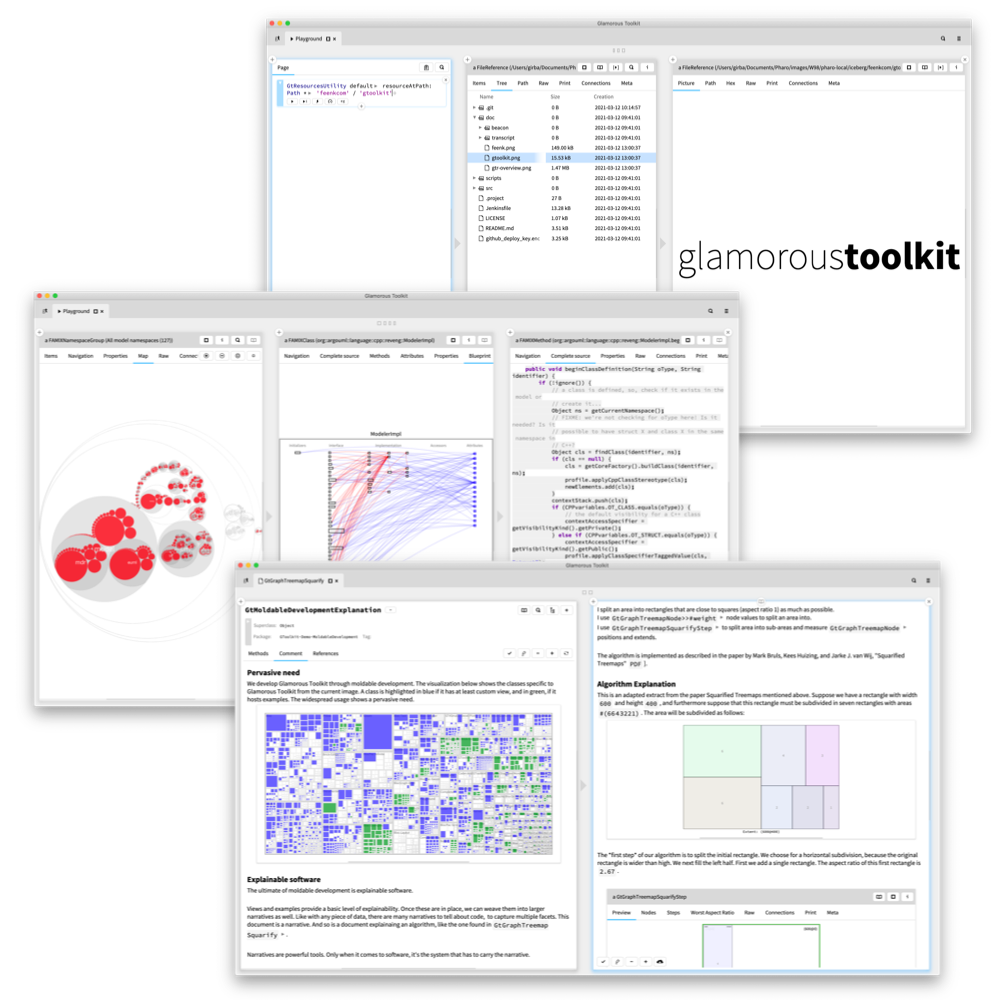We are consultants.
We are researchers.
We are authors.
Our mission is to make the inside of software systems explainable. We believe this is achievable by affecting the way we look at systems. We regard software engineering as being primarily a decision making activity, and we treat tools as being essential.
We contribute two things towards our goal. We invented Moldable Development, a way of programming through which we construct contextual tools for each software development problem. To show how this can be practical, we are developing Glamorous Toolkit, the moldable development environment.

Timeline
2009
Tudor Gîrba authors the Humane Assessment method which pioneers the idea that software development should be regarded primarily as a decision making activity, and shows how systems can be made explainable through systematic construction of contextual tools.
2011
The first incarnation of the Glamorous Toolkit inspector shows that individual objects can be visualized in practical ways.
2014
After intensive applications of software assessment in industry, Tudor’s work receives international recognition through the Dahl-Nygaard Junior Prize. He is the only recipient of the prize acting from industry. His acceptance keynote puts forward the concept of software environmentalism.
2015
feenk is founded and takes on ambitious customer projects.
2017
The work on the new generation of Glamorous Toolkit starts.
2018
2019
The first public demo of Moldable Development. Moldable Development is a generalization of Humane Assessment, and the demo provides an overview of its applicability.
2020
Glamorous Toolkit beta is released.
2021
Lepiter is integrated in Glamorous Toolkit.
2023
Glamorous Toolkit 1.0 is released.
Funding
We fund ourselves through customer projects. We work with two types of customers: those who want to modernize legacy systems and those who seek a competitive advantage.
We often work with teams that need to modernize large legacy systems considered difficult to move forward. These problems can vary significantly at both the technological and business levels.
We also work with organizations that want to leverage software engineering as a competitive advantage. We achieve this by materializing the domain in code that acts as executable specifications, visualized in a way that non-technical people can evaluate quickly.
While these problems are typically considered radically different, we approach them uniformly. For all these projects, we exclusively use the tools and techniques we create. There are two reasons for this. First, we believe our tools and techniques provide unique abilities. Second, using the same approach across many real-life projects provides evidence that our research is widely applicable.
How we work internally
A story of how we work: #remote, #nomeetings, #noestimation, #nobacklog. #storytelling
feenk etymology
[fiːŋk]
verb
feel and think concomitantly.
feenk is a word we made up to express the idea that even in our technical world, the way we feel is as important as the way we think.
Team
Ioana Girba
Storyteller